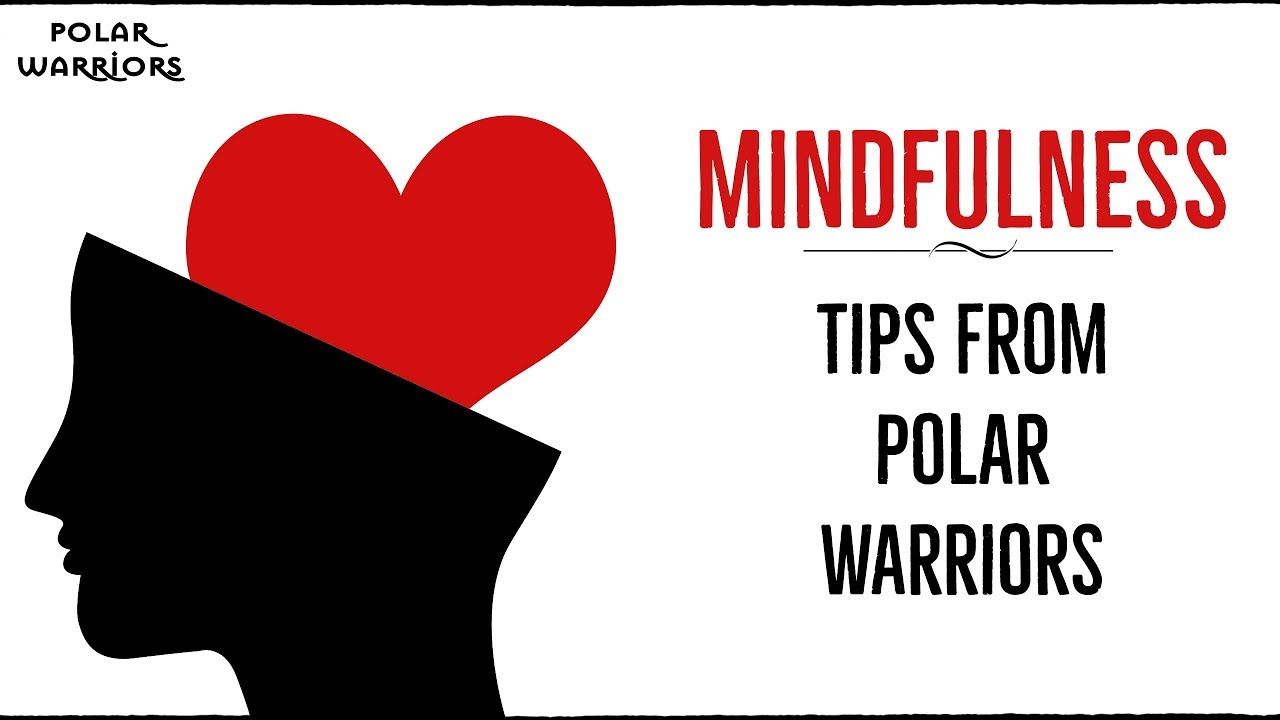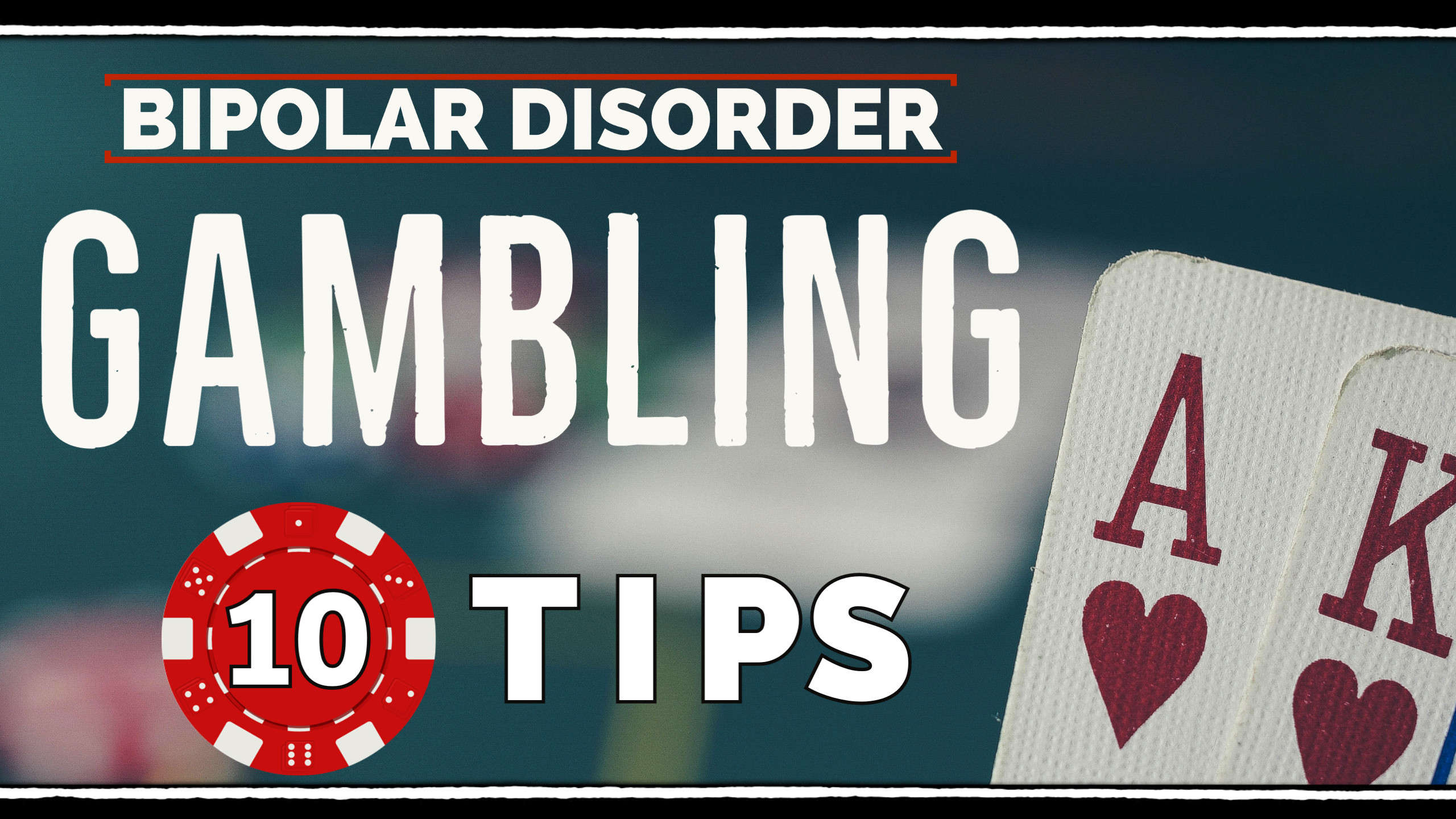
CLICK IMAGE TO PLAY VIDEO
TRANSCRIPT FROM THE VIDEO:
10 things TO SAY to someone with Bipolar Disorder:
“There are many videos on YouTube that talk about what NOT to say if someone has Bipolar Disorder. I made one myself – and it’s been a popular video, but there’s something missing from it. Something very important. I didn’t talk about things you CAN or should say. In fact, you’ll probably have a hard time finding ANY videos online that talk about what TO say. It’s a tough because if someone is severely symptomatic, there might not be anything you can say without triggering a negative response. It’s like walking on verbal egg shells and I know how frustrating this can be – to say the least. If someone has Bipolar Disorder and you can’t reason with them, it probably means that the person you care about is temporarily unavailable… That their symptoms have gotten stronger than their ability to cope with them.
Timing can be everything when it comes to successful communication. Knowing when to engage, and when to take a step back. The only way to know this is to talk about it. Have a plan in place for the bad times. Talk about what works and what doesn’t because it’s different for everyone.
All that being said, here are 10 approaches or suggestions you might try if the person you care about is struggling with Bipolar Disorder symptoms.
Number one… Give them permission to feel the way they feel. If you go on a mission to try and “change the way they feel,” both of you will probably end up feeling frustrated or disappointed. Try saying something like “I can only imagine how hard it must be to feel that way… It’s ok if you don’t feel ok and I’m here for you.” This is so much better than saying things like “You’ll be fine… Everyone gets depressed… or, it’s not that bad.” Let the person feel the way they feel. Try your best to help them to “feel ok with not feeling ok.” If you can’t relate to the way they are feeling, it doesn’t mean those feelings aren’t very real. Like I said, give them permission to not be ok.
Number two… avoid asking the person “what’s wrong?” I actually made a whole video about this one. Using the word “wrong” insinuates that there’s something inherently wrong with the way they feel. It also puts the person in a defensive mode or victim role. Instead, try asking something like “what happened,” or even ask the person “what’s right” in their life. The words we choose make a massive difference in successful communication.
Number three… Avoid using statements that tell the person how to feel. If you say something like “you shouldn’t feel so sad,” or “you shouldn’t worry about that,” it’s almost like making them feel bad about feeling bad. Instead, try saying something like “you have every right to feel the way you feel,” or “I really hear how you’re feeling.
Number 4… Don’t say anything at all. Sometimes there literally isn’t anything you can say that is going to change the outcome for the better. If you feel like you’re going in circles and starting to get frustrated, stop the talk. I know it can be unsatisfying to stop in the middle of an emotional conversation, but sometimes action is the better way. This might include setting a gentle boundary by leaving the room. Sometimes just giving the person a hug or getting them a cup of coffee can make the biggest difference. The only way to know the best action is to talk about it. I have completely different needs when I’m upset compared to my partner. We both know what helps and what doesn’t because we’ve discussed it.
Number 5… Try not to compare suffering… You know the saying “misery loves company” right? Well, most people interpret this as“misery loves misery.” Sometimes we really just need company… Someone to just be there in the room with us. “Company” doesn’t have to mean comparing how horrible each other’s suffering is. “Oh, I get that depressed sometimes…” or “my sister’s aunt’s second cousin had Bipolar Disorder so I know how you feel. Although other people might share similar experiences, our suffering is really our own. Try your best to validate the way the person feels and keep the focus on them. I’d suggest saying something like “That must be really hard. Does it help to talk about it?” Or “I’d like to learn more so I know how to help.” You can even say “I might not understand exactly how you feel, but you’re not alone.
Moving on to number 6… Empathy can go a long way – especially if there is direct personal experience behind it. Instead of saying “I know how you feel,” try saying “I can relate to how you feel.” This shows empathy while at the same time, respecting the individuality of each other’s experience.
Number 7… Figure out “what works for THEM, instead of saying what works for you. If you say “I just listen to music or just go on a walk when I feel depressed,” It’s almost like saying “all you need to do is listen to music or go on a walk and you’ll be happy.” Avoid using the words “I just” or “all you need to do…” What works for one person, might not do anything for someone else. Try asking things like “what helps you the most when you feel like this?” Try to get them talking about “what works” and then make suggestions based on what they say. If they tell you that “just talking helps,” then do what you can to keep the conversation going.
Number 8… Offer a little assurance. My partner or friends will say things like “you aren’t alone, this will pass, you’ve gotten through this before, depression is a liar, this is treatable and we will keep trying.” Things like that. Even if there isn’t anything that someone can say or do to CHANGE the way I feel, it always helps me personally to hear some words of encouragement. Sometimes just assuring me that my partner (or even a friend) will still be here when my episode passes is powerful.
Number 9… Let the person know that you believe them. This is a lot different than just saying “I hear you, or I understand.” Saying that you believe someone is so validating. You can say things like “Depression IS very real, I believe you, or you are not going crazy.” Some of us are so used to hearing things like “get over it” or “you’ll be fine” that it’s very refreshing to hear someone say “I hear and believe you” so keep that one in mind.
We’ve made it to number 10, and I saved this one for last because it talks about a sensitive topic… Suicide. About one in five people with Bipolar Disorder lose their battle with the illness. A common story I hear is that “no one ever saw it coming… The person didn’t express that they were depressed or had suicidal thoughts.” That being said, it never hurts to let the person know how important they are to you. It could plant a tiny seed that saves a life later on. I’d suggest saying something like “I’m really glad you haven’t given up and that you are in my life.” Or “I’m proud of you for making it through the really hard times because I need you in my life.” Basically – in your own words – let the person know how important they are in your life. You might not always get a warm and fuzzy response back, but at least they heard what you said. It could make a big difference later.
Now even with everything I’ve just suggested, it’s always possible that you say all the right things and your loved one still becomes upset at you. Try your very best to stay calm and not take it personally (I know, that’s WAY easier said than done, but it’s the most productive and peaceful way). It’s important to embrace the fact that you can’t always reason with someone who is severely symptomatic. Sometimes the illness takes over and the person you love is temporarily unavailable.
If there’s something I missed that works really well for you or your loved one, please join the conversation in the comments. I love hearing from the community and I’ve learned so much from listening to you all. Please keep your comments constructive as we are all here to learn and share.
If this is your first time visiting Polar Warriors, a very warm welcome to YouTube’s largest video support Community for Bipolar Disorder. If you want to get even more from your Polar Warrior experience, check out the link in the video description. We have an amazing community on Patreon where you can contact me directly, access private videos I don’t share on the channel, and support my ability to keep making free videos for the world to enjoy.
Take good care and I’ll be back soon with more Polar Warrior videos. Stay well!
“It’s a tough because if someone is severely symptomatic, there might not be anything you can say without triggering a negative response. It’s like walking on verbal egg shells and I know how frustrating this can be”
 WELCOME TO POLAR WARRIORS: If this is your first time visiting my website or channel, welcome to “the Polar Warrior experience!” My channel is completely dedicated to helping individuals, families, and friends who struggle with, or know someone living with Bipolar Disorder. My goal is to provide actual Bipolar tools and to discuss topics which can potentially help “Polar Warriors” grow to live a more balanced, peaceful, and fulfilling life.
WELCOME TO POLAR WARRIORS: If this is your first time visiting my website or channel, welcome to “the Polar Warrior experience!” My channel is completely dedicated to helping individuals, families, and friends who struggle with, or know someone living with Bipolar Disorder. My goal is to provide actual Bipolar tools and to discuss topics which can potentially help “Polar Warriors” grow to live a more balanced, peaceful, and fulfilling life.
Want MORE From Polar Warriors…

“We couldn’t do this without the support of those who believe in what we’re doing. Please help Polar Warriors reach more people by sharing about us on Social Media or by donating. Together we can save lives.”











Excellent!
Thank you so much for your videos . I have a son who is 35 and Bipolar . I love him so much and need to try and help him . He is unmedicated and self medicates . I am hoping that I can learn more from your videos to save my son and make him happy again . He used to smile all of the time . I haven’t seen that sunny smile in alot of years and he needs to feel it and I need to see it . Thank you again
Thank you so much for your website, Facebook page and videos. My son is 20 and was just diagnosed with bipolar disorder. My goal is to learn so much about this disorder and your videos have given me so much hope. I will be checking back regularly. Thank you 🙏🏻